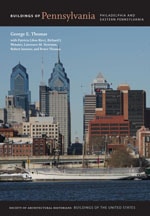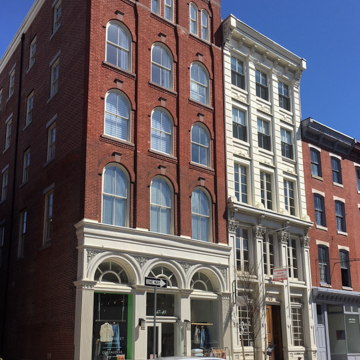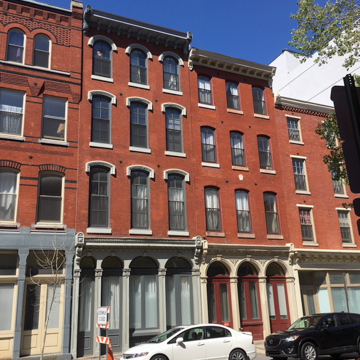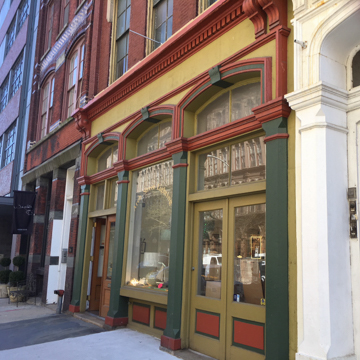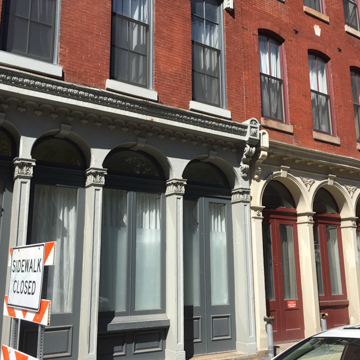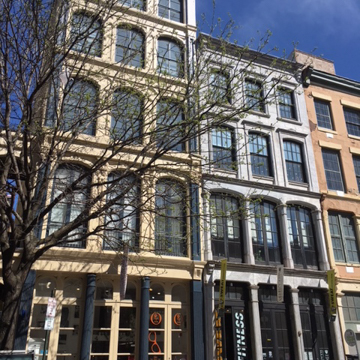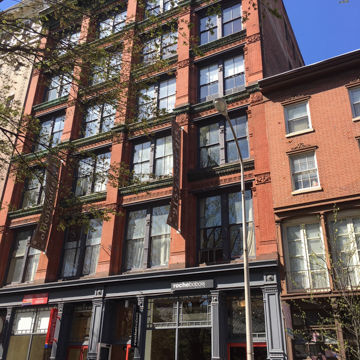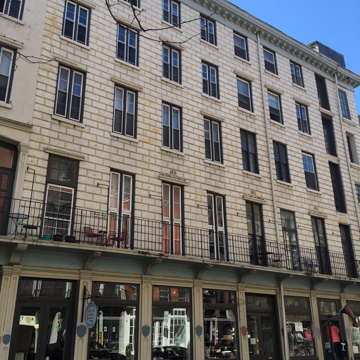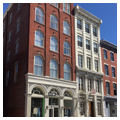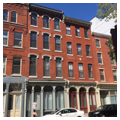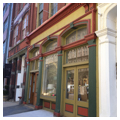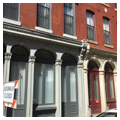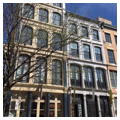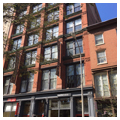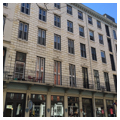Philadelphia was an important center of iron manufacturing—indeed many of the fancy New Orleans porches were made here and as a result many of the shop fronts of the old city used the new material that provided better interior illumination as well as maximum ornament and minimal cost. Cast iron can be identified by the large-scale elements made without multiple blocks as with stone, and often by bits of rust peeking out below layers of paint; paint alone is not sure evidence because stone was often painted. Despite multiple layers of paint, the names of the iron makers cast into the bases of pilasters are often visible. Cast-iron-fronted buildings in Philadelphia appear wherever there are 1840s to 1890s buildings, most commonly east of Independence Mall and north of Chestnut Street but examples can be found north of the Convention Center as well.
You are here
Cast-Iron District
If SAH Archipedia has been useful to you, please consider supporting it.
SAH Archipedia tells the story of the United States through its buildings, landscapes, and cities. This freely available resource empowers the public with authoritative knowledge that deepens their understanding and appreciation of the built environment. But the Society of Architectural Historians, which created SAH Archipedia with University of Virginia Press, needs your support to maintain the high-caliber research, writing, photography, cartography, editing, design, and programming that make SAH Archipedia a trusted online resource available to all who value the history of place, heritage tourism, and learning.

